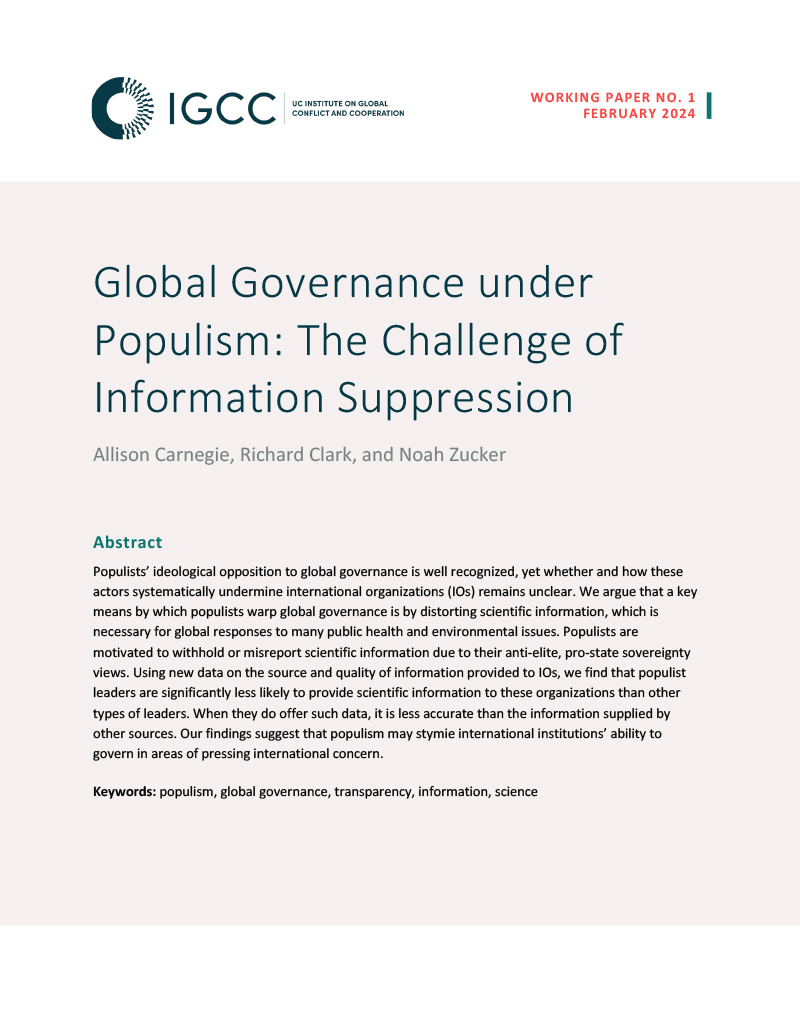Global Governance under Populism: The Challenge of Information Suppression

In this working paper, co-authors Allison Carnegie, Richard Clark, and Noah Zucker illustrate how populist leaders are significantly less likely to provide scientific information to international organizations than other types of leaders, suggesting that populism may stymie the ability of international institutions to govern in areas of pressing global concern.
DownloadPopulists’ ideological opposition to global governance is well recognized, yet whether and how these actors systematically undermine international organizations (IOs) remains unclear. In this working paper, co-authors Allison Carnegie (Columbia University), Richard Clark (Cornell University), and Noah Zucker (London School of Economics) argue that a key means by which populists warp global governance is by distorting scientific information, which is necessary for global responses to many public health and environmental issues. Populists are motivated to withhold or misreport scientific information due to their anti-elite, pro-state sovereignty views. Using new data on the source and quality of information provided to IOs, they find that populist leaders are significantly less likely to provide scientific information to these organizations than other types of leaders. When they do offer such data, it is less accurate than the information supplied by other sources. Their findings suggest that populism may stymie international institutions’ ability to govern in areas of pressing international concern.
View the working paper appendix here.
Thumbnail credit: Executive Office of the President of the United States